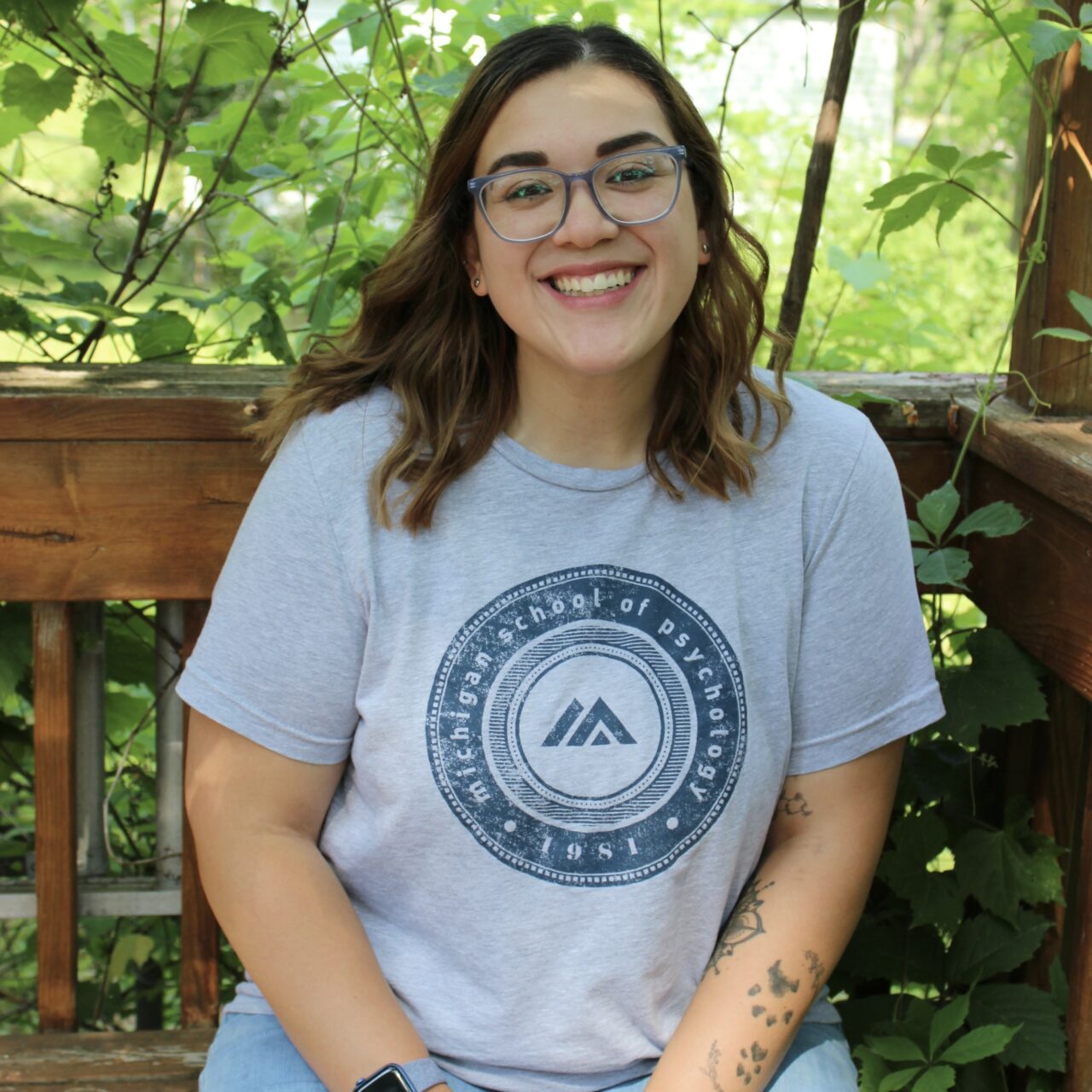 Johanna Soet Buzolits, PhD
Johanna Soet Buzolits, PhD
Core Faculty
Office phone: 248.476.1122, ext. 113
Email: [email protected]
Dr. Johanna Soet Buzolits joined the faculty at the Michigan School of Psychology in 2018. She is the co-owner and operator of Arbor Wellness Center in Ann Arbor, Michigan where she works with adolescents and adults on a broad range of mental health concerns including: depression, anxiety, trauma, eating disorders, managing chronic illness, recovering from toxic relationships, sexual and domestic violence. She is a registered yoga teacher and combines body-based work with traditional psychotherapy.
Previous to these positions, she worked as a Project Director for the Michigan Domestic and Sexual Violence Prevention and Treatment Board supporting statewide initiatives to train providers of survivor services. She worked as interim Assistant Dean of Students for the University of Michigan, leading efforts to address critical incident management and helping to develop protocols for appropriately responding to students in crisis. She also served as the Director of the Sexual Assault Prevention and Awareness Center at the University of Michigan. She has conducted research and written on topics such as trauma, sexuality, birth, college student mental health, instrument development, multicultural counseling and spirituality. She has taught clinical skills at Georgia State University and research and survey methodology at both the University of Michigan and Emory University’s School of Public Health.
Education
- PhD in Counseling Psychology, Georgia State University, Emphasis: Health Psychology
- MA in Health Education, Teachers College Columbia University
- BGS in Political Science, English and French, University of Michigan
Licensure
- Licensed Psychologist, State of Michigan
Areas of Expertise
- Trauma
- Eating Disorders
- Chronic Illness
- Cultural Competency
- Spirituality in Counseling
- Body-based Interventions
- Feminist Therapy
- Domestic and Sexual Violence
- Recovery from Toxic Relationships
Selected Presentations
Buzolits, J. S. (2018). Trauma stewardship webinar training series [Webinar]. Michigan Long-Term Care Ombudsman Program.
Buzolits, J. S. (2017). Trauma Stewardship: Navigating Our Response to Other’s Trauma. Columbia University School of Nursing.
Buzolits, J. S. (2016). Trauma Stewardship: Navigating Our Response to Other’s Trauma. Lakeshore Legal Aid.
Buzolits, J. S. (2016). Understanding and Advocating for the Traumatized Client. Michigan Bar, Committee on Domestic Violence.
Buzolits, J. S. (2016). How to Support a Sexual Assault Survivor. Summit to End Campus Sexual Assault, University of Michigan.
Buzolits, J. S. (2015). Managing Stress Through Body-Based Approaches. University of Michigan Nursing 230: Health Promotion and Risk Reduction.
Eisenberg, D. & Buzolits, J. S. (2007). Collecting Data on College Student Mental Health on Your Campus. Depression on College Campuses Conference, Ann Arbor, Michigan.
Buzolits, J. S. & Sevig, T.D. (2006). Results from the College Student Mental Health Survey. Presentation at American College Personnel Association, Indianapolis, Indiana.
Selected Publications
Buzolits, J.S. and Rogers, L. (2013). Trauma informed practice in family law cases. Family Law Journal, 32-39.
Fukuyama, M.A., Sevig, T.D., Soet, J. (2008). Spirituality in counseling across cultures: Many rivers to the sea. In Pederson, P.B, Draguns, J.G., Lonner, W.J., Trimble, J.E. (Eds.), Counseling Across Cultures (6th edition) (pp. 345-362). Thousand Oaks, CA: Sage Publications.
Eisenberg, D., Greden, J., Meyer, T., Soet, J., Sevig, T., & Vasquez, J. (2007). University of Michigan’s three-pronged approach to mental health. Student Affairs Leader, 35(19), 1-2.
Soet, J.E. and Martin, H. (2007). Women and spirituality: An experiential group for female graduate students. Journal of College Counseling, 10, 90-96.
Soet, J. E. & Sevig, T.D. (2006). Descriptions of mental health issues facing a diverse sample of college students: Results from the college student mental health survey (CSMHS). NASPA Journal, 43(3), 410 – 431.
DiIorio, C., Resnicow, K., McDonnell, M., Soet, J., McCarty, F., & Yeager, K. (2003). Using motivational interviewing to promote adherence to antiretroviral medications: A pilot study. Journal of the Association of Nurses in AIDS Care, 14, 52-62.
Soet, J.E., Woodring, T.M. DiIorio, C, Dudley, W.N. (2003). Gender differences on college students’ HIV prevention goals. Southern Online Journal of Nursing Research, 4 (1), 1-18.
Soet, J. E., DiIorio, C. Brack, G. L. (2003). Prevalence and predictors of women’s experience of psychological trauma during birth. Birth, 30 (1), 38-48.
Resnicow, K., DiIorio, C., Soet, J.E., Borelli, B., Ernst, D., Hecht, J. (2002). Motivational interviewing in medical and public health settings. In Miller W., & Rollnick S., (Eds.), Motivational Interviewing (pp. 251 – 269). New York: Guilford Publications, Inc.
Resnicow, K., DiIorio, C., Soet, J.E., Borelli, B., Ernst, D., Hecht, J. (2002). Motivational interviewing in health promotion: It sounds like something is changing. Health Psychology, 21, 444-451.
DiIorio, C., Dudley, W., Lehr, S., Soet, J.E. (2000). Determinants of safer sex communication among college students. Journal of Advanced Nursing, 32 (3), 658-665.
Q&A
- What advice would you give to a student entering The Michigan School of Psychology?
Enjoy the process! Don’t get so focused on grades or outcomes that you lose sight of the wonderful process of discovery and learning. I encourage you to stay open to things that you might not think you are interested in…certain areas, populations, approaches or activities. Use this time to get to know yourself and become the person you want to be.
- Please provide a statement or philosophy regarding the practice of psychology.
I believe that the practice of psychology is a blend of art and science. It is important to balance the two – too much science and your interventions can become rote or static, too much art and you risk being ineffective or even harmful. A good therapist has a good grounding in the research and science of psychological interventions and also relies on their instincts and intuition. It is important to be willing to continually learn and try new approaches to meet your clients needs.
